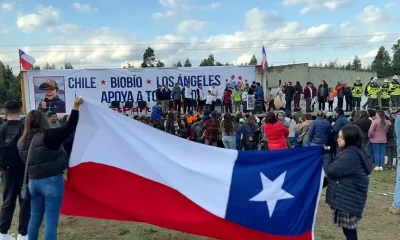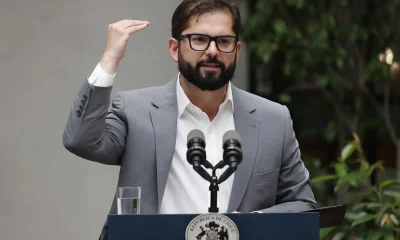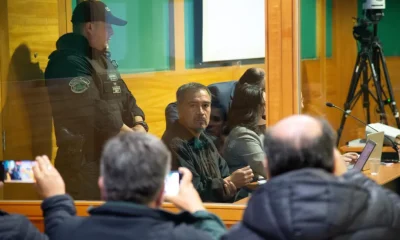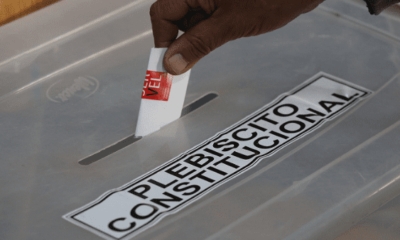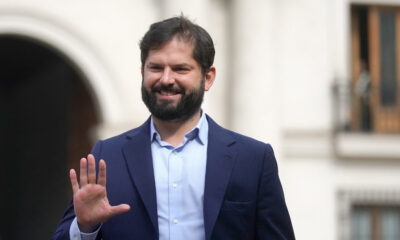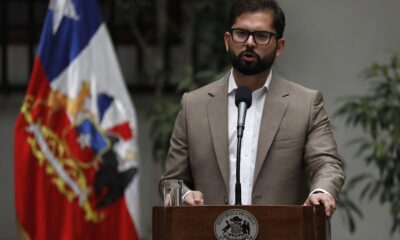International
Chilean President promises to prioritize social rights and security
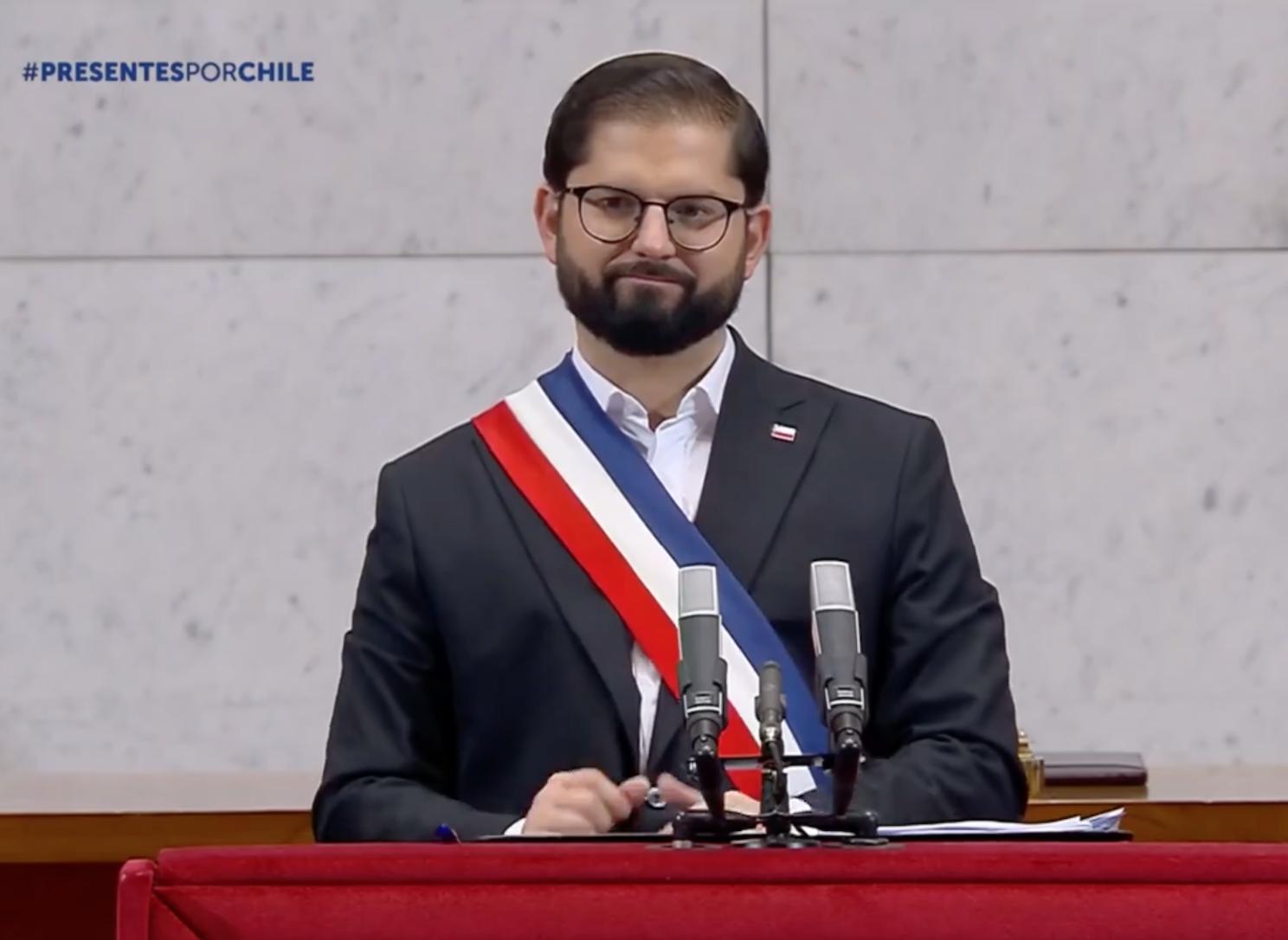
June 1 |
The President of Chile, Gabriel Boric, declared today that his government’s roadmap in the next stage will have social rights, public safety and sustainable development as priorities.
During his second Public Account, from the seat of the National Congress in Valparaiso, the President mentioned some achievements of his administration, such as the increase in the minimum wage, the reduction of the working day and the elimination of health payments.
“But we must not be confident, nor relax in the fight against poverty”, said Boric, and called to move towards a country where equality of opportunities is effective, wage equality between men and women is achieved, and universal health and pensions are improved.
The dignitary insisted on the urgency of advancing in Parliament the Pension Reform, which seven months ago was presented in that instance and the vote on the project has not yet begun.
He acknowledged that one of the great scourges of society is the so-called waiting list in hospitals, and reported that in the first year of his government, the time for surgery was reduced by 32.7 percent and the time for specialist consultations by 22 percent.
“This is a great advance, but it is not enough: half of the people still have to wait more than 330 days for surgery and more than 261 days to see a specialist,” he said.
Boric promised to reduce these times by 40 percent by the end of his term, for which additional resources are necessary, one more reason to insist on tax reform.
In his speech to the nation, the President admitted that he had to order his priorities in view of the degree of tensions presented by society, its fears and uncertainties, and the delay of the State in responding to them.
“We have made the fight against crime our first priority, allocating more resources for the police, creating the National Policy against Organized Crime and the Streets without Violence Plan, which is already making progress in reducing crime, dismantling gangs and seizing drugs and weapons,” he said.
He stated that the State of Chile has been affected by this social pandemic for several years.
“It is hard to say it, but in terms of resources, technology and recruitment, crime, crime, drug and arms technology and recruitment, delinquency, drug trafficking and organized crime have modernized much faster than the state did to fight them and protect the population. to fight them and protect the population,” he said.
During the balance, the president reported that his administration increased the budget for security and order by 4.4 percent this year, the first increase after five years of stagnation.
In environmental matters, he mentioned the conclusion of an agreement for a marine protection corridor along the Pacific.
He added that in the coming weeks the Oceans Treaty will be deposited at the United Nations headquarters in New York after 16 years of discussion, and Chile presented its candidacy to become the world capital for its protection.
International
Claudia Sheinbaum: Operation Against ‘El Mencho’ Was Based on Pending Arrest Warrants

Mexico’s President Claudia Sheinbaum on Wednesday rejected claims that the military operation that resulted in the death of Nemesio Oseguera Cervantes, known as “El Mencho,” leader of the Jalisco New Generation Cartel (CJNG), was carried out under pressure from the United States government.
Sheinbaum explained that the deployment of federal forces was aimed at executing outstanding arrest warrants against Oseguera Cervantes, who was considered one of the most wanted criminals in both Mexico and the United States.
“That was not the objective (to ease pressure from the United States). It is very important, and I want to repeat it. This individual had an arrest warrant, or several,” Sheinbaum said, referring to the operation conducted on February 22.
According to the president, the initial goal was to capture Oseguera Cervantes, but military forces responded after coming under attack during the intervention.
“The operation was to detain him. The problem is that they were attacked — the Secretariat of National Defense — and they responded at that moment,” she said.
The president insisted that the action was not carried out in response to external demands, although she acknowledged intelligence cooperation with the United States.
“It was not done in any way because of pressure from the United States, not at all. Of course, there was intelligence information from the United States that was used specifically,” she concluded.
International
Spain Denies Any Agreement to Cooperate with U.S. Military in Iran Operations
International
White House Says Spain Agrees to Cooperate with U.S. Military After Trump Threatens Trade Embargo

White House Press Secretary Karoline Leavitt said Wednesday that Spain has agreed “in recent hours” to cooperate with the U.S. military, following President Donald Trump’s threat to impose a trade embargo on Madrid.
Trump had warned of potential commercial measures after Spain reportedly refused to allow the Pentagon to use facilities at Spanish military bases for operations related to Iran.
“With respect to Spain, I think you heard the president’s message yesterday loud and clear, and I understand that in recent hours they have agreed to cooperate with the United States military,” Leavitt said during a press briefing.
She added that the U.S. military is currently coordinating with its counterparts in Spain. However, the president expects broader support.
“The president expects that all of Europe, all of our European allies, of course, will cooperate in this important mission — not only for the United States, but also for Europe,” Leavitt said.
Her remarks came in response to questions about Spain’s position and its role as a U.S. ally amid rising tensions surrounding operations involving Iran.
-

 International3 days ago
International3 days agoIran Reports 201 Dead, 747 Injured After U.S. and Israeli Strikes
-

 International2 days ago
International2 days agoBrazil’s Supreme Court Rejects Bolsonaro’s Bid for House Arrest
-

 International3 days ago
International3 days agoPope Leo XIV Urges End to ‘Spiral of Violence’ in Middle East
-

 International4 days ago
International4 days agoSecurity Council to Hold Emergency Meeting on Middle East Crisis
-

 Sin categoría4 days ago
Sin categoría4 days agoTrump: ‘We Think It’s True’ Amid Claims Iran’s Supreme Leader Was Killed
-

 International2 days ago
International2 days agoAnti-ICE Billboard Campaign Targets Immigration Spending in 31 U.S. Cities
-

 International2 days ago
International2 days agoTrump Warns of ‘Major Wave’ of Attacks as Iran Conflict Escalates
-

 International1 day ago
International1 day agoSpain’s Prime Minister to Address Nation Amid Trump’s Trade Threats
-

 International2 days ago
International2 days agoMexico Calls for Immediate Probe After National Dies in ICE Custody
-

 International2 days ago
International2 days agoBolivia Orders Three Investigations Into Deadly Military Plane Crash
-

 International1 day ago
International1 day agoNew York Announces First 2,000 Seats in Universal 2-K Program
-

 Central America2 days ago
Central America2 days agoPanama Canal Monitoring Trade as Middle East Conflict Disrupts Shipping
-

 Central America1 day ago
Central America1 day agoGuatemala’s Attorney General Fails in Bid for Top Court Seat Amid Corruption Allegations
-

 International1 day ago
International1 day agoWarner Bros. Developing First ‘Game of Thrones’ Movie With ‘Andor’ Writer
-

 International5 hours ago
International5 hours agoWhite House Says Spain Agrees to Cooperate with U.S. Military After Trump Threatens Trade Embargo
-

 International5 hours ago
International5 hours agoSpain Denies Any Agreement to Cooperate with U.S. Military in Iran Operations
-

 Central America5 hours ago
Central America5 hours agoNicaragua Held Responsible for Harassment of Opposition Prosecutor and His Family
-

 International4 hours ago
International4 hours agoClaudia Sheinbaum: Operation Against ‘El Mencho’ Was Based on Pending Arrest Warrants





























